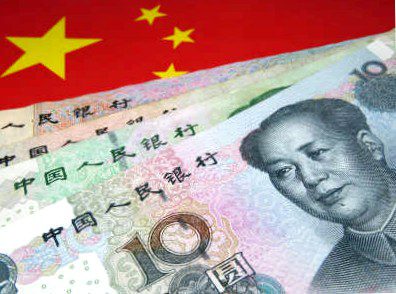
In August, China's top legislature approved an amendment to the Individual Income Tax (ITT) Law. This also entails changes affecting foreign employees on secondment in China. The law becomes effective on 1. January 2019 to take full effect. An overview of the most important changes to income tax:
Introduction of a clear residency definition
The most important change in the ITT law for expats is the introduction of a clear definition of residency, which is now based on the residency rules of other countries. As of 1. January 2019, an individual residing in China for more than 183-days is considered a resident of China and is subject to taxation in China on income earned worldwide.
The new 183-day rule will thus replace the one-year rule that has been in place until now. According to this, a foreigner only became liable to unlimited taxation after a stay of one full year or longer in China. For this purpose, it was considered a full year if the taxable foreigner did not stay outside China for more than 30 days at a stretch or more than 90 days in total in a tax year.
Five-year rule remains in force in modified form
According to the announcement of the draft implementing regulations of 20. October 2018, the so-called "five-year tax rule" remains in effect with one major change. That is, individuals who stay in China for less than five years and leave the territory of China for 30 days at a stretch within this five-year period can still benefit from a tax exemption for income earned outside China with the approval of the tax authority. As a result, multiple trips of more than 90 days are no longer an option to avoid the five-year rule.
However, as a general rule, it must be assumed that from a stay of more than 183 days, all income earned inside and outside China is subject to Chinese income tax.
Adjustment of tax rates bring relief for low incomes
In the new ITT law, the previously four differently taxed types of income of individuals – wages and salaries and income from professional services, copyrights and royalties – are combined into one category of general income and taxed according to revised progressive tax rates. The new tax rates are expected to bring relief to low- and middle-income individuals. The new tax table has already been available since 1. October 2018 into effect and shows as follows:
| Level | Annual taxable income (RMB) | Tax rate (%) |
| 1 | 0 – 36.000 | 3 |
| 2 | 36.000 – 144.000 | 10 |
| 3 | 144.000 – 300.000 | 20 |
| 4 | 300.000 – 420.000 | 25 |
| 5 | 420.000 – 660.000 | 30 |
| 6 | 660.000 – 960.000 | 35 |
| 7 | above 960.000 | 45 |
From the overview, it can be seen that taxable income will henceforth be calculated on an annual basis and no longer on a monthly basis. However, this only applies to foreigners who are recognized as Chinese tax residents. For non-residents, income tax will continue to be paid monthly or. calculated on a pro rata basis.
Furthermore, the standard expatriate allowance increases from RMB 4.800 to RMB 5.000 per month or RMB 60.000 per year.
Introduction of special deductions
For the first time, the new ITT law also introduces new special deductions. This includes annual expenses for
- School and university education for children (up to max. RMB 12.000 per child),
- Continuing education with a university degree (max. RMB 4.800)
- Professional training (max. RMB 3.600)
- Medical expenses for serious illnesses (cost portion exceeding RMB 15.000, up to max. RMB 60.000),
- Mortgage interest (max. RMB 12.000 husband or wife),
- House rent ( depending on the place between max. RMB 9.000 and max. 14.400)
- Expenditure on support for elderly people aged over 60 (max. RMB 24.000)
Under the previous regulations, foreigners already had tax advantages through special deductions, which, according to our current knowledge, will remain in place. However, under certain conditions, there is an option to claim the special deductions under the new rules instead.